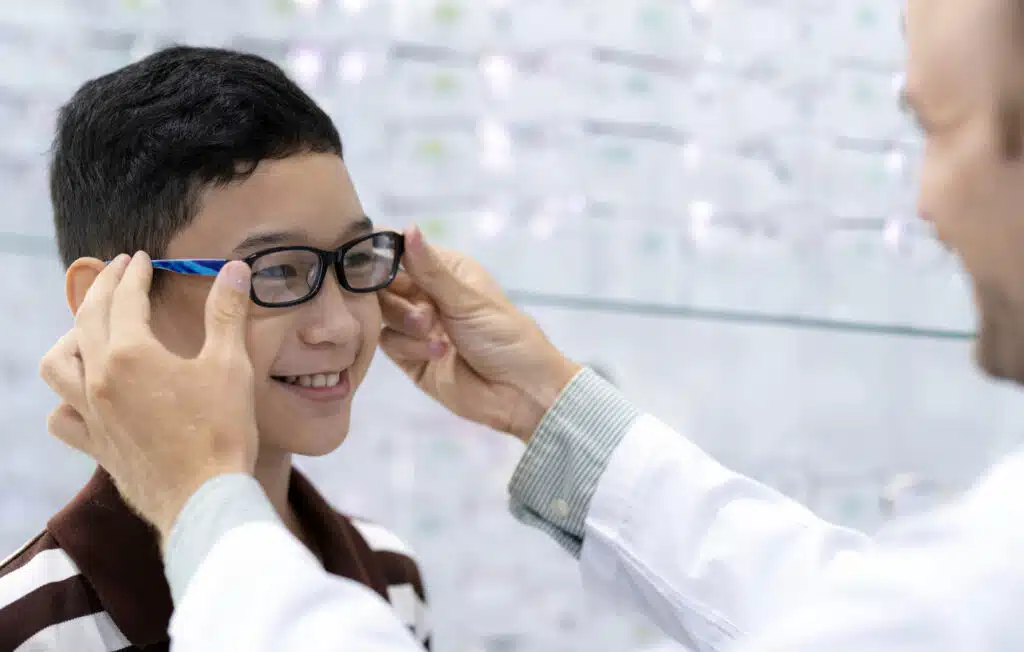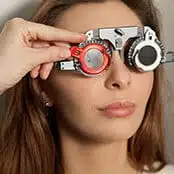
According to the Centers for Disease Control and Prevention (CDC), about 11 million Americans aged 12 and above need vision care and/or correction, yet they ditch their eye doctor visit.
Regular eye doctor visits and eye exams are necessary for the early detection of vision issues and other serious eye-related problems that can lead to significant quality-of-life issues later.
Although intimidating, seeing an eye doctor for an eye exam can keep you away from many serious eye conditions and allow you to see your everyday brightly. For a good eye exam, it’s the best idea to arrive prepared.
Let’s talk about some tips on how to prepare for an eye doctor’s visit and where you can find the best eye doctor in Washington, MO.
Tip#1 Write Down the Symptoms You Have
Take a moment to think about the issues you are having. The common symptoms of vision or other eye problems are blurred vision, poor night vision, and problems in distinguishing colors, to name a few. If you have any of these symptoms or any other symptoms, feel free to write them down and make a list. Also, write down when your eye-related symptoms started, what makes them worse, and what helps improve those symptoms.
Writing down your symptoms will help you remember to bring them up during the visit and help your doctor understand your eye issue better.
Tip#2 Bring Current Glasses or Contact Lenses You Are Using
If you are currently using any glasses or prescription lenses, remember to bring them with you when you visit a doctor for an eye exam. This will allow your eye doctor to examine them and make adjustments if needed.
Tip#3 Make a List of Your Current Medication
If you are using any eye drops or taking any other medications regarding eye problems or any other problem, write them down. Bring that list of medications on your visit to your eye doctor.
This will allow your eye doctor to evaluate if any of the medication is affecting your vision and if any of the medication has side effects on your eyes.
Tip#4 Review Your Medical History
Take a while to review your medical history before an eye exam. Note down the diseases or any condition you have had or any surgical procedures you had in the past.
Tip#5 Know Your Family Medical History
Because many diseases and conditions, like cataracts, glaucoma, color blindness, macular degeneration, and strabismus, have genetic causes and can run in families. So, it’s better to know all your family medical history, particularly the history of eye disease in your blood relatives. This will allow your eye doctor to evaluate better and diagnose your eye problems.
Tip#6 Bring a Family Member or Friend with You
If you have blurred vision or are feeling anxious, bring one of your family members or friend with you for support. Your family member or friend may support you morally and help you remember questions and concerns you may forget during the appointment.
Tip#7 Be Ready for an Eye Exam
If you have any questions about eye health which you want to ask your doctor, write those questions. Also, be ready to participate in conversation with your doctor actively and to answer the questions your eye doctor might ask you. This will surely help you and your doctor to get a better understandingof your eye condition.
In eye tests, your doctor may ask you to read the chart of the alphabet, and they may dilate your eyes and perform other tests, so come prepared for them.
Eye Exam in Washington, MO
Do you have blurred vision? Do you have poor night vision or any other eye problems? If so, visit us at Advanced Sight Center, where our board-certified and extensively experienced ophthalmologists conduct an eye exam and provide a wide range of services to improve your eye health.
Our highly trained team of ophthalmologists is experienced in providing the diagnosis, treatment, and preventive care of a wide range of eye-related problems and vision problems. We are equipped to provide both surgical and non-surgical treatments for eye-related problems such as cataracts, diabetic neuropathy, glaucoma, etc.
To know more about an eye exam or eye condition or schedule a consultation with one of our ophthalmologists, call us at (636) 239-1650 or fill out our online appointment request form.



